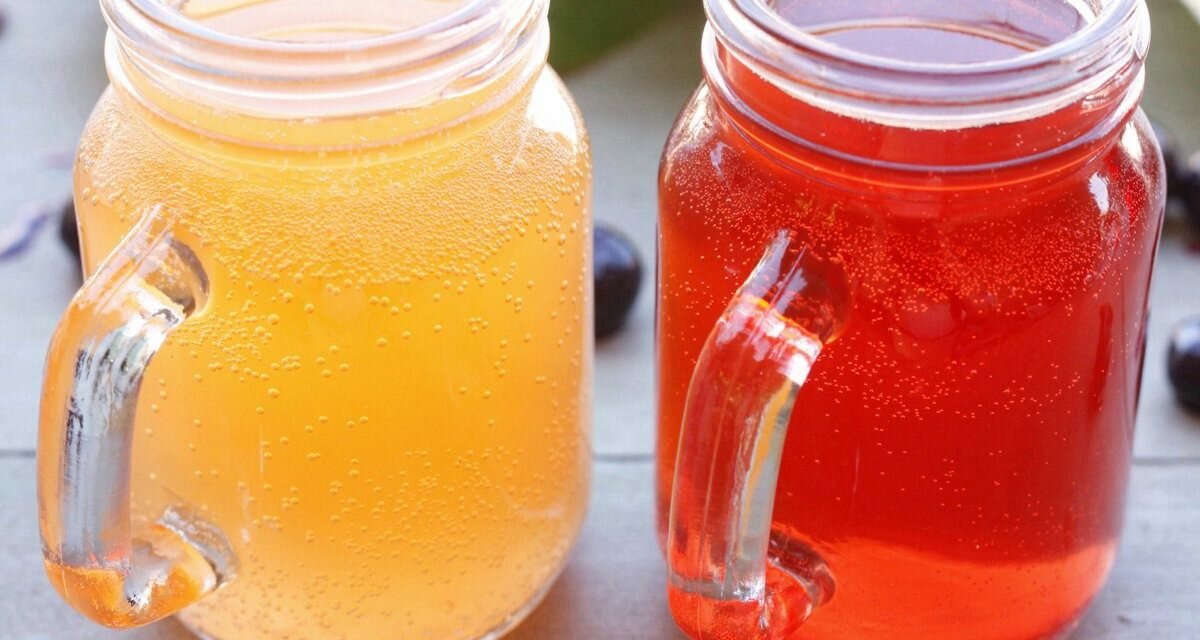Kombucha has been consumed for thousands of years and is a fermented probiotic drink that originated from China but oftentimes is credited to be originated from Russia.
It is made from tea, sugar, a scoby and a starter from a previous batch (you will need a starter kit to start brewing kombucha).
The sugar and caffeine is used all up in the fermentation process so don’t worry, it has very little (if any) caffeine or sugar in the final product.
A SCOBY is an acronym, best described as a symbiotic colony of bacteria and yeast. It is beneficial bacteria and yeasts that work synergistically together to produce a certain type of ferment.
Kombucha is brewed (or fermented) over a course of 7-31 days.
After being fermented, kombucha becomes carbonated and contains vinegar, b-vitamins, enzymes, probiotics and a high concentration of acid (acetic, gluconic and lactic), which are tied with the following effects:
Improved Digestion
Weight Loss
Increased Energy
Cleansing and Detoxification
Immune Support
Reduced Joint Pain
Cancer Prevention
The detoxifying capacity of kombucha is immense. A perfect example is in its ability to counteract liver cell toxicity.
In one study, the liver cells were protected from oxidative injury and actually maintained their normal physiology, in spite of being exposed to a toxin! According to  researchers, this was “probably due to its antioxidant activity and could be beneficial against liver diseases, where oxidative stress is known to play a crucial role.”
researchers, this was “probably due to its antioxidant activity and could be beneficial against liver diseases, where oxidative stress is known to play a crucial role.”
Naturally, the antioxidant prowess of this ancient tea counteracts free radicals that create mayhem in the digestive system. However, the greatest reason kombucha supports digestion is because of its high levels of beneficial acid, probiotics and enzymes.
Kombucha is not intended to have magical healing aspects, but it is a potentially healthy and delicious beverage that is relatively low in calories and sugar. As with anything, drink in moderation and savor it, do not drink excessively.
Featured image credit : @kombuchahunter










Recent Comments